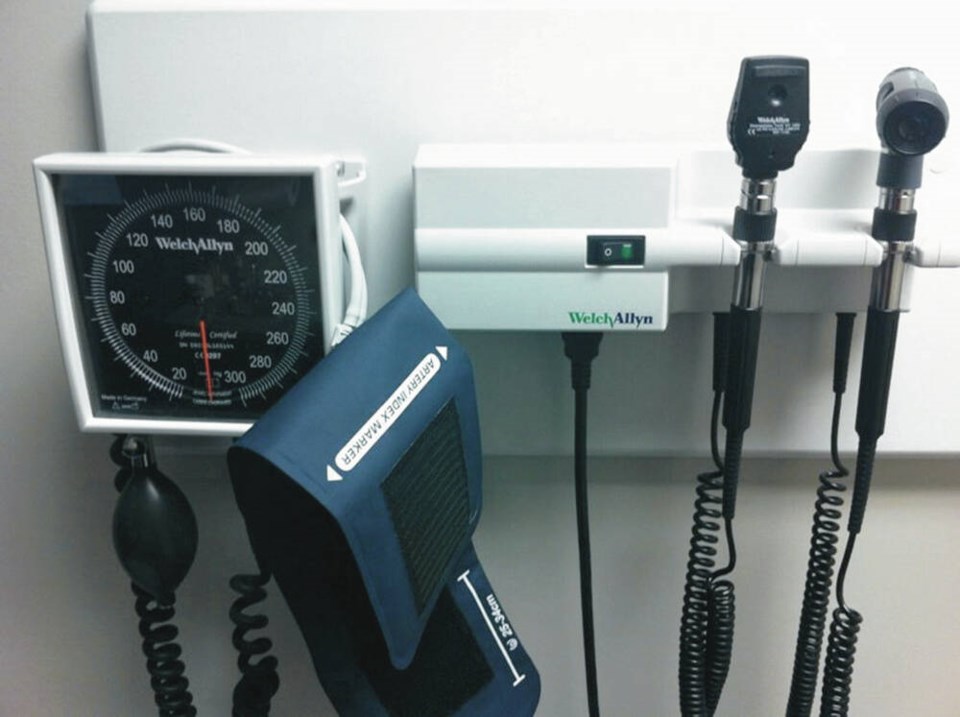A commentary by a retired family physician who lives in Saanich.
I see that Health Minister Adrian Dix is being berated for stating a current but unpalatable truth: The overcrowding of emergency rooms in hospitals and the general shambles of getting into medical care is unfortunately “the new normal.”
Dix did not say that it was acceptable, but the sheer chronicity of the problem indicates it is more than a transient situation. Fixing this problem is not going to be easy, but looking at the causes will be a start to make sure mistakes are not repeated.
There are two major fundamental historic missteps which have weakened the very foundations of medicare. One is a deep-rooted administrative and political blunder. The other is underestimating the advances in medical diagnosis and treatment.
Dealing with the first one. In the 1980s there was high-level political contention that there were too many physicians practising in the province.
These physicians were thought to be over investigating and over-treating patients, and this was the principal cause of escalating funding shortfalls.
The then-premier Bill Vander Zalm ordered a royal commission which was presented in 1991. This commission produced a report “Closer to Home” which even more firmly placed the blame of escalating costs on the physicians; it had several recommendations.
Some of these included:
• Firmly discourage all foreign medical graduates from practising in British Columbia.
• Develop a new program to actively reduce the total number of physicians in British Columbia.
• Cap the amount of money paid to family physicians if a specific budget limit was reached.
This essentially meant that come the year end, the physicians received no income from the Medical Services Plan, but the office staff needed to be paid and office expenses continued. The result of this was that the relationship between the Ministry of Health and physicians went from bad to worse, and the morale was abysmal. There was quite a stampede of physicians moving to the United States.
Physicians felt that they had been treated shabbily, and they were in no mood to help implement some of the other suggestions from this royal commission aiming to try to even out the distribution of physicians in the province.
The other significant problem is the advances in medical diagnosis and treatment and the fact that we are all living longer. I give myself as a prime example of this.
I am 77 years old and over a year ago I began to develop some atypical chest discomfort, which I completely misinterpreted.
I eventually ended up in the emergency department and began the investigations of my problem. It was angina.
Investigations for this over the year included two treadmill tests, a chest x-ray, a CT angiogram of the heart (which showed an incidental anomaly which had to be followed up with two more CT scans), a nuclear scan of the heart, and ultrasound of the heart (echocardiogram) and finally an angiogram.
This required about three hours in the special cardiac unit where the blocked arteries were identified, cleared and stents put in. All went well for about a year, but symptoms began to reoccur, and another urgent angiogram was necessary and further stents applied.
This procedure has done nothing to increase my longevity, but it has made a tremendous difference to the quality of my life.
If I presented with this problem just after I graduated in 1969 I would have been given advice to gently exercise and lose weight, and an inexpensive nitroglycerin medication and to try and live within the limitations.
CT scans, ultrasounds and nuclear scans were then unheard of, but they have opened so many opportunities for diagnoses and treatments. Should I have declined these interventions in view of my advanced age?
Can society afford these investigations and treatments?
I have no idea. This is one for the medical ethicist.
I feel I must clearly state that the treatment which I received through all these investigations and procedures was absolutely flawless. The conditions were explained and I was treated with respect and kindness through all these many visits. When in the system, there is nothing to complain of — the issue is gaining access to it. How can we improve this?
I have no idea. There will be no easy or inexpensive solution. I hope that senior administration and politicians will begin to listen to all the primary care practitioners who are best able to look at efficient team-based care — to make the new normal more palatable.
>>> To comment on this article, write a letter to the editor: [email protected]



